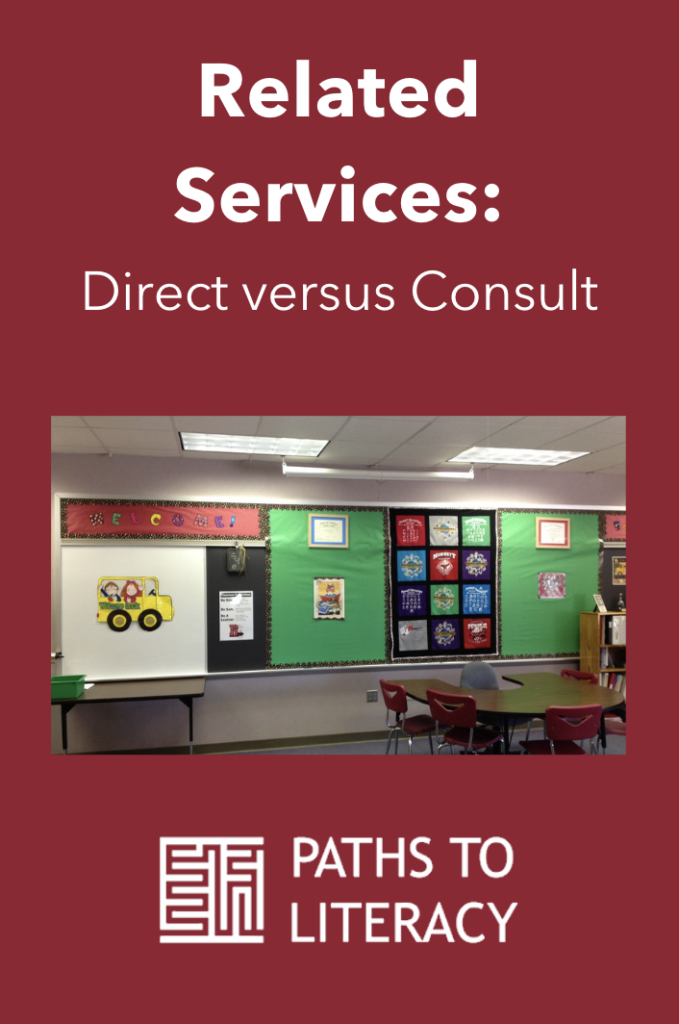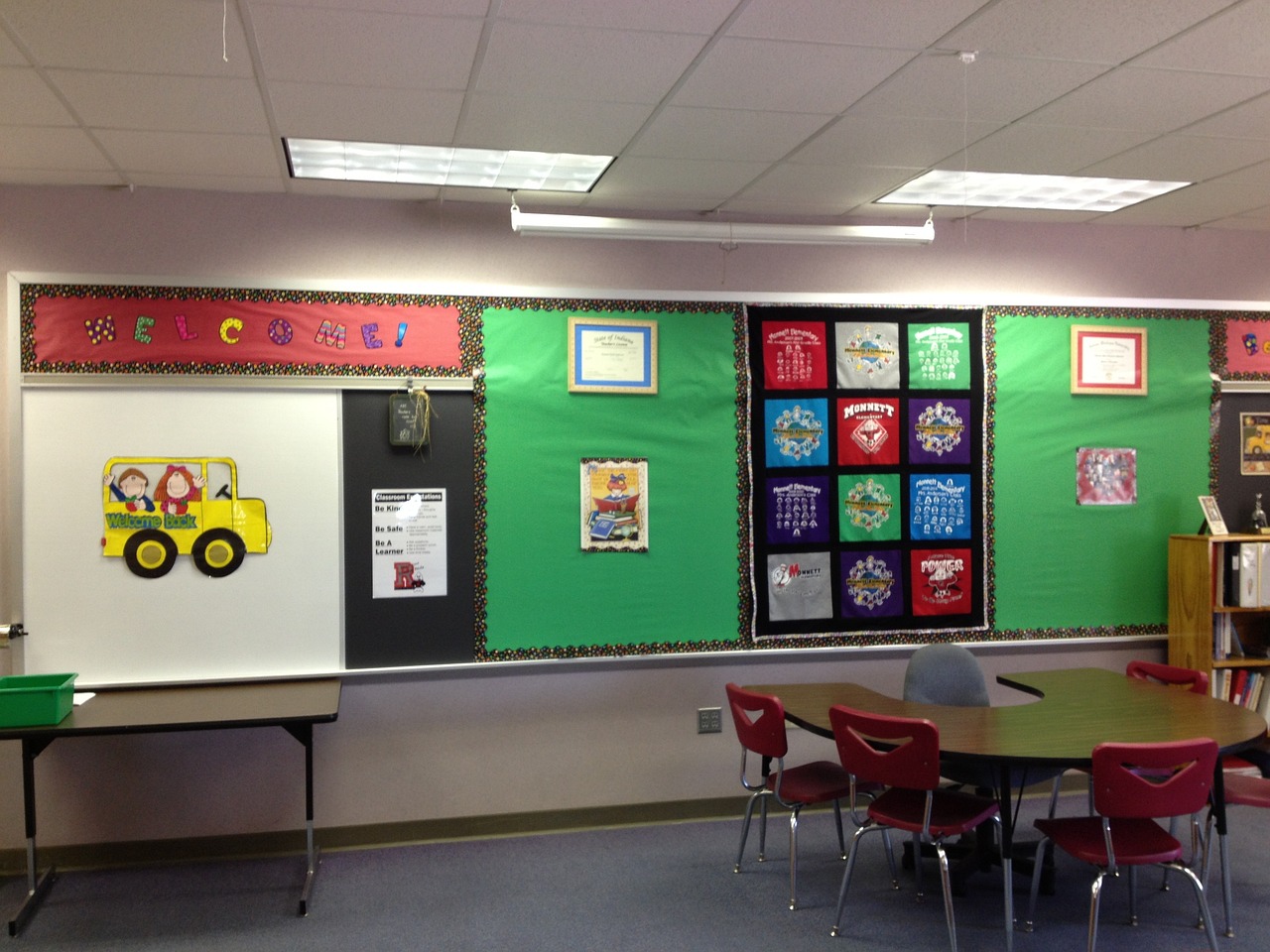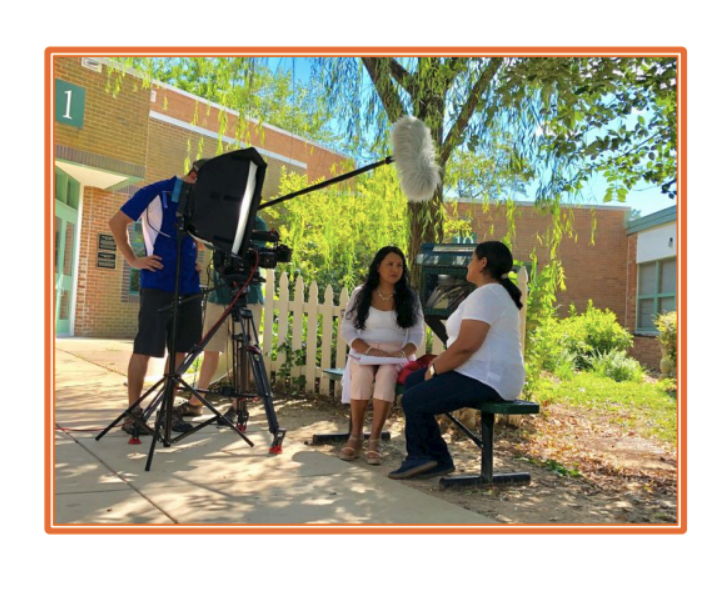By Jim Durkel, Texas School for the Blind, Outreach Department
Parents who are preparing for an IEP meeting sometimes contact me for support. One of their chief concerns often is whether related services will be offered on a consultant rather than a direct service basis to their child. The way they generally interpret “consult basis” is less service for their child. Although in some cases this may mean less time in the classroom for the related service provider, it should not mean less service.
“Direct service” and “consult” are phrases we have all seen on IEP forms. Usually these phrases refer to a related service such as OT, PT, speech therapy, orientation and mobility, services from a teacher for the visually impaired or hearing impaired, etc. Many questions generally come up for parents when the issue of consult or direct related services is discussed.
What is the difference between these two types of service?
In direct service, a related service provider works directly with a student on particular IEP objectives. The service provider can do this in a group or individually. He or she could work with the student in the community, in a classroom, lunchroom, or therapy room. A variety of activities, such as reading, eating, playing, riding a bus, or walking down the hall, can be used. Direct service is best for a student who has needs that only a particular professional can meet efficiently and appropriately. An orientation and mobility expert is the professional who should establish use of a cane. A speech therapist may work on developing swallowing skills. Notice that what direct service does best is establish a skill that the student may go on to use in a variety of different environments and activities.
Consulting is the means by which a related service provider can help other professionals meet a student’s IEP goals and objectives. The recipient of consulting is not the student but another professional. Consulting is a type of service delivery that is best used to ensure that a student has multiple opportunities in a day to use a particular skill. For example, a teacher for the visually impaired may consult with a classroom teacher about materials that are appropriate for a particular student’s visual abilities and share strategies for working on scanning. Using these materials, the classroom teacher can have the student work on the skill of scanning in all classroom activities, not just when the teacher for the visually impaired is present.
Doesn’t consulting mean that my child will receive less service?
Consulting is a type of service delivery that is used because it is the best way to meet a particular student’s IEP objectives. It is not to be used as a way to increase a particular professional’s case load size. Consulting is as time consuming as direct service and is done to guarantee that a student is getting as many opportunities to meet a particular IEP objective as possible. In this context, consulting is the means by which a student receives more, not less, service. Good consulting will include observation of and interaction with your child. A good consultant will know your child as well as they would if providing direct service.
How can I, as a parent, monitor consulting services?
You should receive documentation of consulting services just as you should receive documentation of direct services. Staff providing consulting services should have records of when a consult occurred, who received the service, what was discussed, and the result of the visit, including scheduling of the date and an agenda for the next visit. From these records, you can check the frequency of the visits against the frequency that should have been specified in the IEP. Records of the content of the consultation helps you and the IEP team discuss the effectiveness of this service delivery.
How much consultation should I expect?
“Consultation as needed” is too vague. Either consultation is needed and a specific amount of time can be set, or a different type of service delivery is needed and that can be specified. Although TEA has established no official guidelines for consultation, 30 minutes once a month is a ball park minimum for effective consulting. However, less than this amount may be all that is needed for certain related services. For example, a teacher for the hearing impaired may inservice staff on the use of amplification and then periodically check the condition of that equipment. No other service may be needed from that professional and so additional time is not specified in the IEP. This is an important service but it is not consulting.
Some additional points to consider
Direct service and consulting are not mutually exclusive. Any time a student is receiving direct service, some consulting should be also be occurring so that the student can have opportunities to generalize the use of skills.
It is important to recognize that consulting services require another professional who is willing and able to implement IEP objectives in this manner. If this is not the case, consulting will not work and direct service will need to be provided.
The type of service must be determined by the IEP committee. The Federal Office of Special Education and Rehabilitation Services, has ruled that the type of service delivery can not be the result of district policy. For example, all students with an IQ score below 50 can not automatically receive consulting instead of direct service. Neither must all students with an IQ score below 50 automatically receive direct service instead of consulting. As with every other educational component in your child’s IEP, the determination of direct or consult services should be based on the individual educational needs of the child.
This article was originally published by Texas School for the Blind and Visually Impaired (TSBVI) in P.S. NEWS!!! (January 1995 edition) and is reprinted here with permission.





